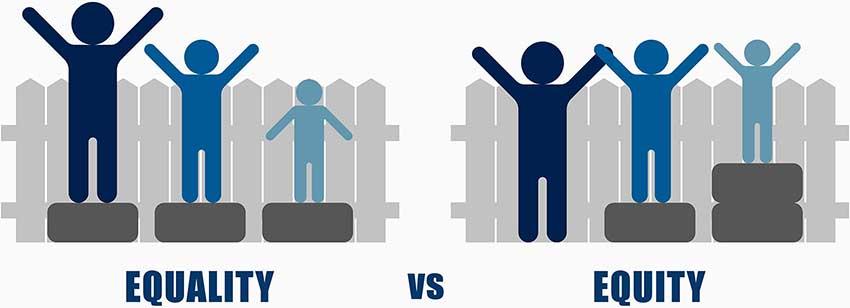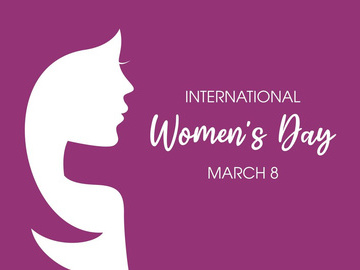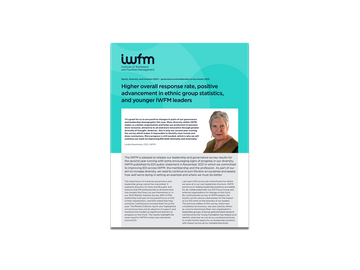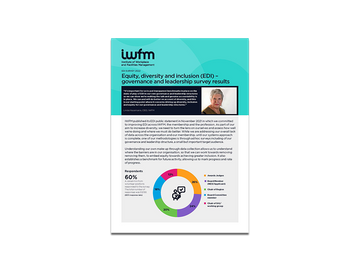Introduction
Inclusion in the workplace is a basic requirement for the growth, progress and success of organisations in today’s interconnected and diverse world.
IWFM is committed to placing equity, diversity and inclusion (EDI) at the heart of our organisation, governance, membership and profession. We seek to create a community in which all people feel included, valued, supported and that they belong. Our ambition is to foster and support improved EDI practices throughout the workplace and facilities management profession and industry to achieve better outcomes for all. Morally and socially, we believe that this is the right thing to do.
We have created a Focus Group to help us shape and articulate our position and approach on EDI and in 2021 made a first Public Statement outlining our commitment to this initiative, including how we will collect, analyse and use data to help us understand and break down barriers.
In 2023, we embarked on a research journey with 11 other professional membership and regulatory bodies, representing three quarters of a million UK workers. The Young Foundation was commissioned to understand further the role of such bodies in driving EDI and where we could make the greatest impact.
We have accepted its recommendations and used it as an opportunity for IWFM to strengthen our updated Public Statement and drive EDI progress for the future. You can read more about the report, its importance for IWFM and the workplace and facilities profession here, where you will also find supporting materials and recommendations for professionals, employers and policy makers. We have also created a frequently asked questions document for any questions you may have. Additionally, we have updated our Data and research section to outline the methods we’ll be using to gather, track and analyse information related to the performance of EDI at IWFM.
Why is this important to us?
It is important because, while the workplace and facilities sector is increasingly diverse, this is not reflected throughout. The greatest diversity is generally found in those teams delivering the services for which the profession is responsible, rather than in those running them. While we are seeing that our entry levels for the profession are increasingly diverse, we need to do more to reflect this across career pathways at all levels.
Ensuring that we are a diverse and inclusive organisation will allow us to strengthen our ability to support our members and raise their voice, both individually and collectively, on a wide variety of matters. It will also permit us in future to better respond to, and influence effectively on, key issues affecting our members’ working lives.
Diversity expands the talent pool, adds perspective and enriches thought, innovation and influence enabling us to promote better inclusion, and allowing everyone to flourish and progress.
What is equity?
Equity extends the concept of equality to include the provision of varying levels of support based on individuals’ specific needs in order to achieve fairness of treatment and equal opportunity of access. Achieving equality requires the application of policies which ensure equity.

What is diversity?
Diversity is recognising and respecting all the visible and invisible differences between people. This could be in relation to a protected characteristic or something else such as socio-economic background, working pattern, cognitive diversity, or caring responsibilities.
It is acknowledging the benefit of having a range of perspectives in decision-making and the workforce being representative of the organisation’s customers: diverse teams, boards and workforces produce better outcomes.
What is inclusion?
Inclusion is where people’s differences are valued and respected, enabling everyone to thrive at work. Without inclusion, the benefits of diversity (such as increased creativity, innovation and problem solving) cannot be realised.
An inclusive working environment is one in which everyone feels that they belong without having to conform, that their contribution matters; and they are able to perform to their full potential, no matter their background, identity or circumstances. An inclusive workplace has fair policies and practices in place and enables a diverse range of people to work together effectively.
Strategy and activities
Strategy and activities – an updated 2024 Public Statement
Our approach to developing and embedding EDI culture, practices and policies is based on four pillars: governance and leadership, HR and our people, our membership and the profession.
Our aims are:
- to provide clarity about IWFM’s position as an employer and professional body and demonstrate leadership through its structures and practices
- to be a diverse and inclusive employer that enables everyone to be their true self at work and to own and drive inclusivity, diversity and equality
- to increase the diversity of individuals joining the Institute
- to increase the diversity of the profession overall
Our original Public Statement has been updated in line with the recommendations of the Young Foundation Report Beyond Buzzwords. Click herek to find the updated Public Statement and accepted recommendations. A high-level action plan has been approved by the Board, to which we will be accountable for progress made.
Data and research
We need a solid evidence base to identify and understand the gaps and challenges that exist, to implement the concrete and measurable improvements needed to break down barriers to entry and progression, to report on progress made, and to make the greatest possible impact.
This will come from scientific studies, surveys and the professional expertise of key stakeholders, our members and the wider profession. In 2024, alongside 11 other regulatory and professional bodies, we published the Young Foundation report Beyond Buzzwords, about the role of professional bodies in driving forward EDI. You can read more about the report here.
The collection of personal data for the purposes of EDI monitoring, especially that of protected characteristics (these are defined under the Equality Act (2010) and include age, disability, ethnicity, gender, pay, sex and sexuality) will be key to understanding and responding to EDI issues and barriers. Collecting such data is considered standard good practice in many membership organisations. We are also collecting socio-economic data to make sure that the changes in diversity we hope to bring about create access for all, rather than, for example, access being disproportionately available to those from a privileged background.
Collecting such data will help us to:
- identify, develop and encourage best practice in EDI
- develop resources to support our members
- analyse, inform and report on EDI trends within our membership and the profession
- understand and meet the EDI needs of our members
- inform our work and its impact, and develop our plan of action
All sensitive personal data, which will only be collected with explicit and informed consent, is kept strictly confidential, protected and handled in accordance with the UK GDPR. This information is restricted and accessible only by the necessary, authorised personnel and will not be shared in a way that allows any individual to be identified.
Please see our Privacy Policy for full details of what personal data we collect, how it is collected and stored, how it may be used - with specific practices on data, including that on protected characteristics, collected for the purposes of EDI monitoring - and how it is protected in law.
Young Foundation Report
In its search for evidence-based policy making, IWFM collaborated with 11 professional membership and regulatory bodies from a range of sectors to commission the Young Foundation for a report looking at the role and impact of professional bodies when acting to remove barriers to EDI.
Beyond Buzzwords incorporates insights from more than 7,000 professionals across accountancy, law, insurance, human resources, public relations, management, procurement, engineering, health and safety, and facilities management. It finds nearly three-quarters of respondents had experienced barriers to career progression or some form of discrimination in their workplace. Negative experiences were more pronounced among those with multiple marginalised characteristics.
The key findings of the research are:
- Three in four of the total sample of professionals surveyed report experiencing barriers to progression in their career (73%) or ‘discriminatory or exclusionary’ behaviour in the workplace (72%)
- Negative experiences are more common among those with a higher number of more ‘marginalised characteristics’ – belief in meritocracy reduces as people’s number of marginalised characteristics increases
- The testimonies of professionals show how experiences of marginalisation are lived in variable and complex ways on an everyday basis – so there is no one size fits all solution
- Equality, diversity and inclusion must be guiding principles for all decision making - not just for specific initiatives
- EDI interventions must focus on changing the systems that underpin marginalisation. We all have a role to play - professional bodies, individuals, employers and policy makers
To drive change, the report proposes professional and regulatory bodies can raise the bar for accountable, ethical professions with respect to EDI. The IWFM’s updated Public Statement lists and adopts the recommendations targeted at the professional bodies and commits to implement them all. IWFM is accountable to the Board for reporting progress on the ambition outlined in its action plan, to which the EDI Focus Group provided advice, input and ambition. The plan is being incorporated into our organisational plans and we intend to provide progress updates to members at six-monthly intervals.
We have also drawn up a Frequently Asked Questions document, that answers on questions such as why we co-commissioned the research, why the FM profession should engage with the EDI agenda, how the profession performs compared to others etc.
Recommendations to individual professionals, employers and policy makers
Beyond Buzzwords stresses that EDI interventions must focus on changing the systems that underpin marginalisation. We all have a role to play - professional bodies, individuals, employers and policy makers, to that end it included recommendations for individual professionals, employers and policy makers.
Recommendations to individual professionals:
- Challenge yourself to recognise how colleagues’ experiences may be different to your own and reflect on the personal biases you hold.
- Actively work to minimise the impact of these biases on your decision-making and relationships with colleagues.
- Contribute to positive change, working jointly with colleagues and making the most of learning and development opportunities.
- Reflect on your personal progress and admit when you still have more to learn.
Recommendations for employers
- Ensure EDI guiding principles are included in all aspects of decision-making. Appoint an EDI champion at executive level, and link EDI to manager and leader development, performance appraisals, promotions and bonuses.
- Ensure implementation of inclusive recruitment and promotion practices. This should include best practice consideration around role design and adverts, attracting diverse candidates, and salary transparency.
- Encourage a ‘speak up’ culture to nip poor behaviours and practices in the bud. Ensure policies and procedures can respond and react to subtle as well as overt forms of discrimination and exclusion in the workplace.
- Use data, such as staff surveys and exit interviews, to identify examples of discriminatory or exclusionary activities and implement lessons learned.
- Clearly communicate inclusive initiatives/policies and appropriately involve staff in interventions.
Recommendations for policy makers
- Develop systemic structures across education, welfare, health and housing provisions, which promote the fairer distribution of opportunity and support for all to enter, remain and thrive within the professions.
- Ensure legal frameworks regarding equal opportunities, discrimination, harassment, and the statutory commitments of employers (eg, pay gap reporting), effectively protect the rights of workers with diverse characteristics.
- Commit to participatory modes of policymaking that centre the lived experiences of those with marginalised characteristics in policy and service design.
- Commit to working with the professions to review progress and promote action on EDI, as has been done previously by the Social Mobility Commission.
EDI Focus Group
This Group was formed to help us shape and articulate our position and approach on EDI, looking at our practices, strategy and policies to ensure we enable the conversations and steps needed to improve EDI within the Institute and, through our members, the profession.
They are helping us as critical friends to help us understand the barriers to greater EDI within the profession and explore tools to overcome them, driving initiatives and challenging our focus and priorities. Together we will continue to gather, analyse and share data to inform our actions, highlight opportunities for meaningful action, monitor progress, and celebrate achievements which exemplify ‘what good looks like’.
The Group helped us to finalise our consequent public statements, including the high-level plan approved by the Board, which seeks to translate the Beyond Buzzwords recommendations into IWFM accountable actions. They are also helping to shape our detailed action plans which form an integral part of IWFM’s overarching strategy.
Each member of the group is a workplace and facilities management professional with significant experience, insight and expertise relating to EDI policy and implementation. They are:
Useful resources
EDI Public Statement
EDI Public Statement 2021
EDI Focus Group Terms of Reference
Young Foundation:

International Women’s Day: recognising achievement, strategising for progress
While celebrating women on International Women’s Day, let’s remember that despite maki...

Inclusion is a fundamental necessity for organisational success’: IWFM CEO responds to EDI research
IWFM has collaborated with 11 professional membership and regulatory bodies from a ran...

Benchmarking and driving positive change in EDI
IWFM is delighted to share our 2023 leadership and governance survey findings, ...

Equity, diversity, and inclusion (EDI) 2023 governance and leadership survey findings
The IWFM is pleased to release our leadership and governance survey results for the se...

Collaborate with IWFM to launch our Neurodiversity Network
To provide better support, IWFM has been working closely with Chris to establish a Neu...

IWFM EDI Focus Group’s Emma McLaughlin-Edwards on Pride Month: ‘Be active to allyship and be counted’
My name is Emma. I’m a gay woman working in facilities management (FM) and I am the Ex...

‘We can and will do better’ says CEO as IWFM and EDI Focus Group publish governance survey results
Building on November’s EDI public statement in which we committed to improving EDI acr...











